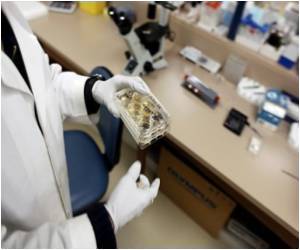Crimea Congo Hemorrhagic Fever (CCHF) outbreaks can easily be controlled by proper hygiene and infection control measures, the Indian Council of Medical Research (ICMR) assures.

The CCHF virus is known to be transmitted among animals through ticks. It does not produce disease in animals, but kills from 20 to 40 per cent of human beings, who get the disease.
ICMR added that typically, after a one to three-day incubation period following a tick bite (5-6 days after exposure to infected blood or tissues), flu-like symptoms appear, which might resolve after one week.
In up to 75 percent of cases, however, signs of hemorrhage appear within 3-5 days of the onset of illness.
Patients usually begin to recover after 9-10 days from symptom onset, but there could be mortality in some cases.
A first ever case of human infection with CCHF virus has been reported from Ahmedabad. Tests conducted at National Institute of Virology (ICMR, Pune) have confirmed the presence of CCHF virus in blood as well as urine samples of the patient.
Source-ANI
 MEDINDIA
MEDINDIA



 Email
Email








